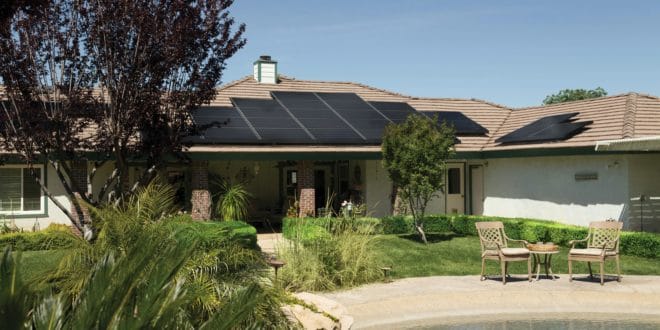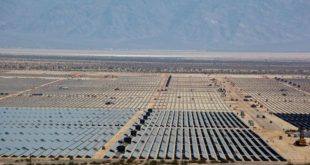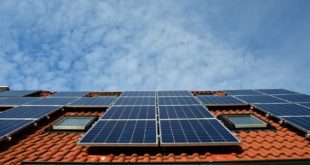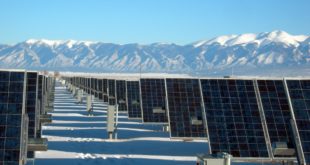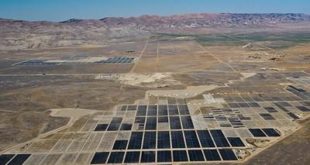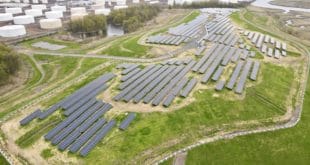___________________________________________________________________________
Society’s understanding and value of global environmental sustainability has increased over the past few years. The United Nations evaluated the demand for emission-reduction efforts, establishing the Paris Agreement. Its goal is to reduce greenhouse gases.
Individuals can support the sustainability goal by installing solar rooftops on their properties. You may increase the efficiency of your investment by first calculating your home’s sun score, which will impact your sustainability metrics.
The Demand for Sustainability Metrics
Zillow and Sun Number teamed up to create the solar potential calculator. If you are selling a property, Zillow may list your home’s sun score, helping individuals gauge valuable data. The scoring system is essential because it helps minimize the residential sector’s greenhouse gas emissions.
Nearly 20% of America’s emissions derive from household energy uses. Most of the power comes from fossil fuels like natural gas and coal. During combustion, the fuel sources release greenhouse gases into the environment.
This changes the atmosphere’s composition and reduces its temperature maintenance abilities. Naturally, the atmosphere produces heat from solar radiation, warming Earth’s surface. After it achieves life-sufficient temperatures, it collects excess energy and sends it to space.
The process supports the global ecosystem, conserving natural resources and environmental conditions. Greenhouse gases alter biodiversity’s stability by raising the atmosphere’s light-to-heat exchange rate. They also contain extra energy in the environment, refiltering it through the heat production procedure.
Over time, emissions can significantly increase the global temperature. Renewable energy systems like solar eliminate emissions associated with electricity production, reducing the enhanced greenhouse effect. They also support the national carbon-neutrality goal set by the Biden administration.
Reducing emissions can effectively decrease adverse environmental effects. Residents may increase the sustainability of their home and conservation efforts by calculating their sun scores and installing solar panels.
Breaking Down a Sun Score
Sun scores range from one to 100. If you receive a high ranking, your home is compatible with solar power. The score report provides information regarding four residential features.
First, it displays your home’s solar potential based on its design. A roof’s direction and materials affect its ability to meet consumers’ energy needs. Asphalt-shingled rooftops are the most common compatible type on the market.
South-facing roofs also achieve the highest efficiency ratings, increasing a home’s sun score. The local climate additionally influences a property’s compatibility. A region’s temperature, weather patterns and sun exposure can affect a panel’s production rate.
Sun scores also explore the cost of panel purchases and installation processes. Another price evaluation comes from a home’s solar potential utility costs. Panels generally provide the most cost-effective power source on the market.
After determining the process of receiving and evaluating your sun score, you can assess the benefits of accessing the information.
Sun Score Benefits
Sun scores effectively help residents evaluate their home’s solar potential. You can utilize the data to increase your property’s value. Houses with high sun scores sell for more money compared to those without.
Properties with panels experience value increases up to $48,000 on average. It is also easier to sell a home with a higher sun score. Eco-consumers are dominating the market, increasing the demand for sustainable goods and services.
Receiving and displaying your property’s score can offer transparency and reduce its time on the real estate market. Once individuals evaluate the benefits, they may schedule their sun score assessment and access their ranking.
Steps After Receiving Your Score
After receiving your sun score, you can increase your property’s compatibility with panels. If you accessed a high ranking, you may install solar technology without altering your property. In low-ranking homes, owners must improve the stability and design of their roofs.
Installation professionals must drill holes in your rooftop to mount the panels. If your roof is unable to withstand the impacts, you must update its materials and design. Replacing it can reduce the cost-effectiveness of solar installations, minimizing an eco-consumer’s likelihood of purchasing the property.
Individuals may use the passive solar design to increase a structure’s support of high panel efficiency levels. The technology uses the sun’s organic positioning to improve a panel’s heating and shading features. Other devices can additionally support sun score improvements.
Score Improving Technology
Environmental engineers and scientists developed a sustainable technology to increase residents’ access to abundant and reliable solar power. They created an efficient storage system using hydrogen, decreasing energy waste and delivering electricity during low-efficiency times. Fuel cell batteries collect and convert solar energy into solid hydrogen.
When residents demand high electricity outputs, the system filters the hydrogen through a hybrid inverter, creating a direct power current. As professionals develop more efficiency-enhancing technology, residents may improve their sun scores.
Is Your Home Compatible With Solar Power?
After calculating your home’s solar potential, you can determine whether you should install panels. Various factors contribute to your property’s compatibility with solar energy. Before installing panels, you should set a realistic budget, receive an electricity audit and locate providers in your area. Then you can reap the benefits of clean, green power.
Emily Newton is the Editor-in-Chief of Revolutionized Magazine, an online publication that explores innovations in science and technology.
 Alternative Energy HQ solar power for homes, wind energy, and bio fuel issues
Alternative Energy HQ solar power for homes, wind energy, and bio fuel issues
